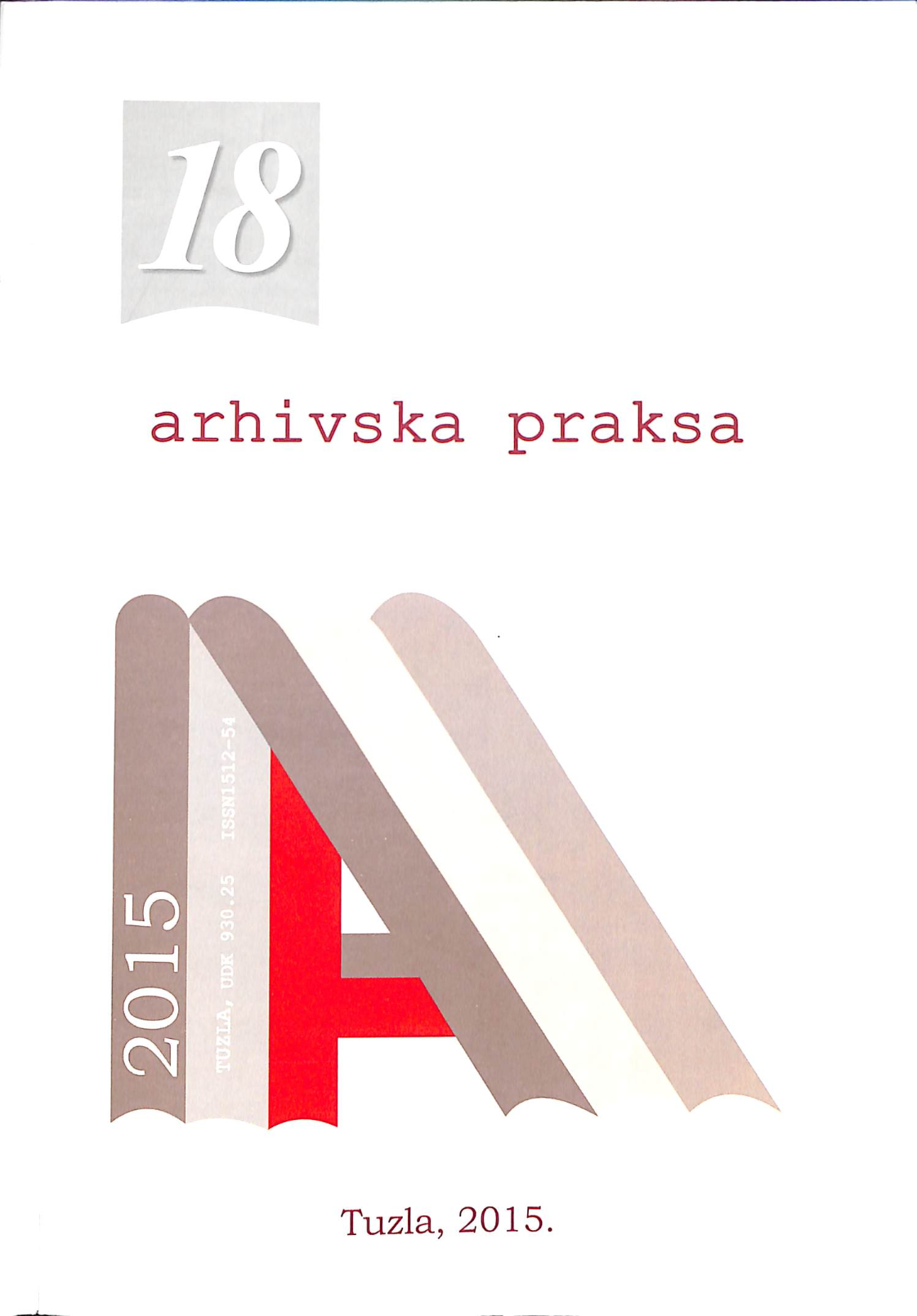Prilike na širem tuzlanskom području od sarajevskog atentata do kraja 1914. godine
Conditions in broader Tuzla area between Sarajevo Assassination and the end of 1914.
Author(s): Izet ŠabotićSubject(s): Political history, Pre-WW I & WW I (1900 -1919)
Published by: Arhiv Tuzlanskog kantona
Keywords: World War I; Sarajevo assassination; the wider area of Tuzla; Bosnia and Herzegovina; Austria-Hungary; Serbia; “Young Bosnia”; Secret branch of Tuzla organization; front;refugees;
Summary/Abstract: Sarajevo assassination of the Archduke Franz Ferdinand and the events that followed thereafter fully affected the overall situation and developments in the wider area of Tuzla. By the end of 1914, in this area there was a war psychosis, in which fully impacted near the border with Serbia and the proximity of the front, which took part on different sides of many young men and the wider area of Tuzla. After the assassination, demonstrations took place in Tuzla, but without major consequences. Official government and religious representatives did everything to calm the situation in this area. Issued a proclamation, held memorial services, masses and prayers, to reflect the loyalty and called for peace. The situation has significantly worsened the arrest and imprisonment of members of the Secret Tuzla pupils’ organizations and a number of anti-Austrian mood of the population. The tension and mood of the population, and mutual hatred grew giving ultimatums and publication of war by Austria-Hungary to Serbia. On the overall situation in this area has been further impacted conducted mobilization and formation of the protective unit. The situation will significantly complicate the beginning of the war which is particularly affected by proximity to the front. The distrust among the population was more widespread. There was a delay of many economic and social activities. In border areas with Serbia, the tension was most pronounced. There was the arrest and deportation of a number of anti-state mood of the population. They have been deported to the camps Bihac and Arad. Close to the front influenced to come to the withdrawal of the population with the Drina area to the interior, creating a refugee crisis. The situation is made worse by refugee wave from Sandzak and eastern Bosnia. Therefore, the authorities did everything in order to normalize the state of the social plan. Performed numerous activities. Been advertised a loan, collected aid for the front and the families of soldiers, orphans and widows. The situation in the region is largely dependent on the situation on the front, and information coming from the front. The population is living in constant tension and war psychosis. The wider area of Tuzla by the end of 1914, lived in the atmosphere of war, exposed to all the consequences of war. They affect the overall relations, and inter-confessional relations that have been significantly disrupted. This will be particularly pronounced after the defeat of the Austro-Hungarian army in the Serbian front, pulling her and the arrival of Serbian and Montenegrin units in this area. The same implement repressive measures, especially against the Muslim population. Wartime conditions of assassination by the end of 1914 were completely influencing developments in the wider area of Tuzla. It was burdened with numerous social, economic, political and war issues. This had a negative impact on the total life, which took place in a war atmosphere, with numerous social and economic processes stopping altogether.
Journal: Arhivska praksa
- Issue Year: 2015
- Issue No: 18
- Page Range: 471-489
- Page Count: 19
- Language: Bosnian, Croatian, Serbian

